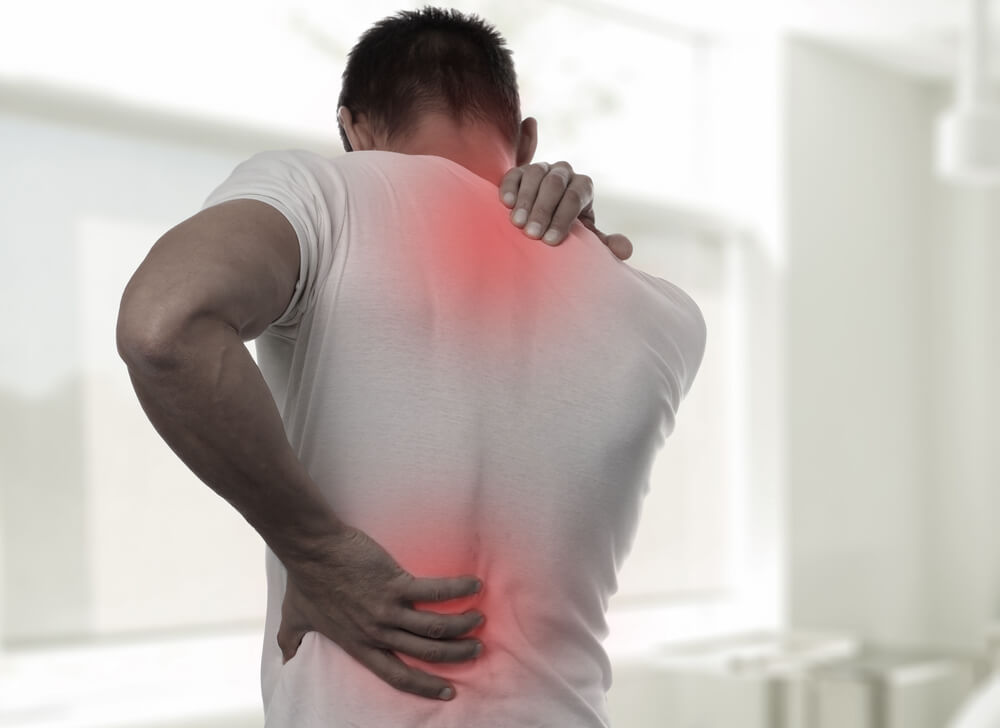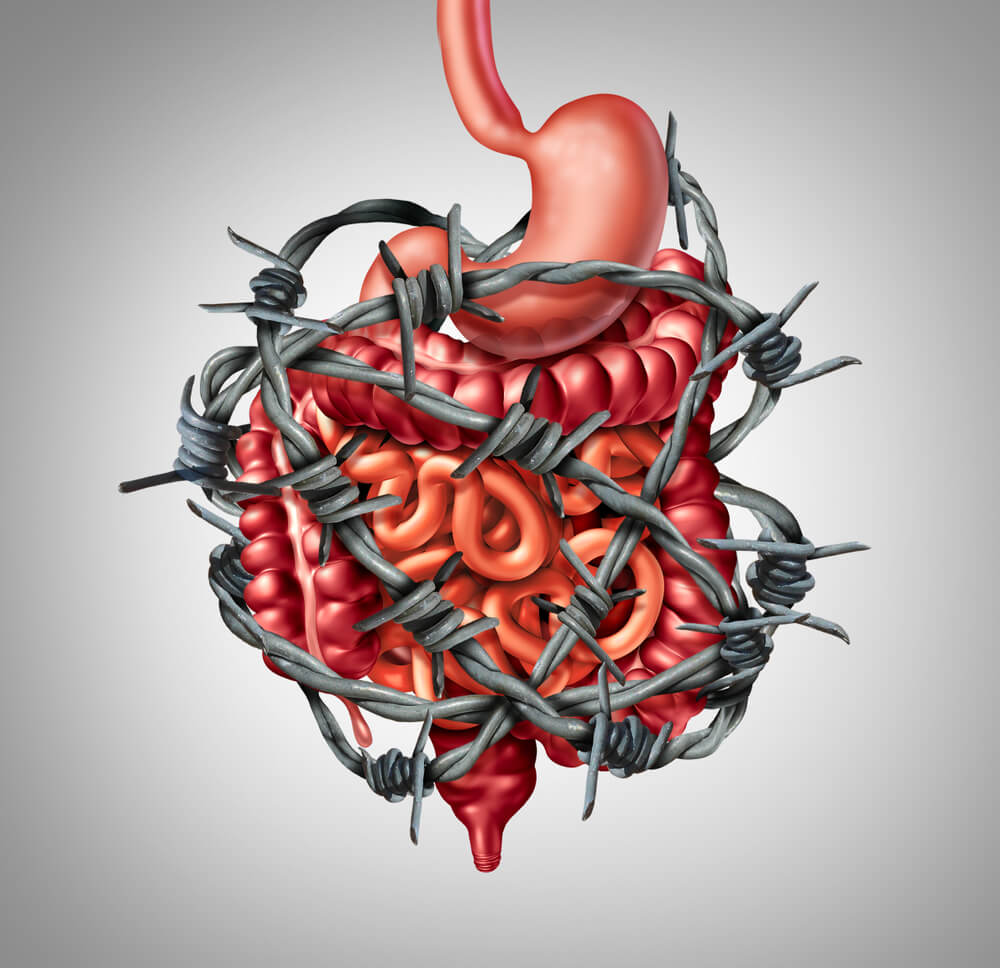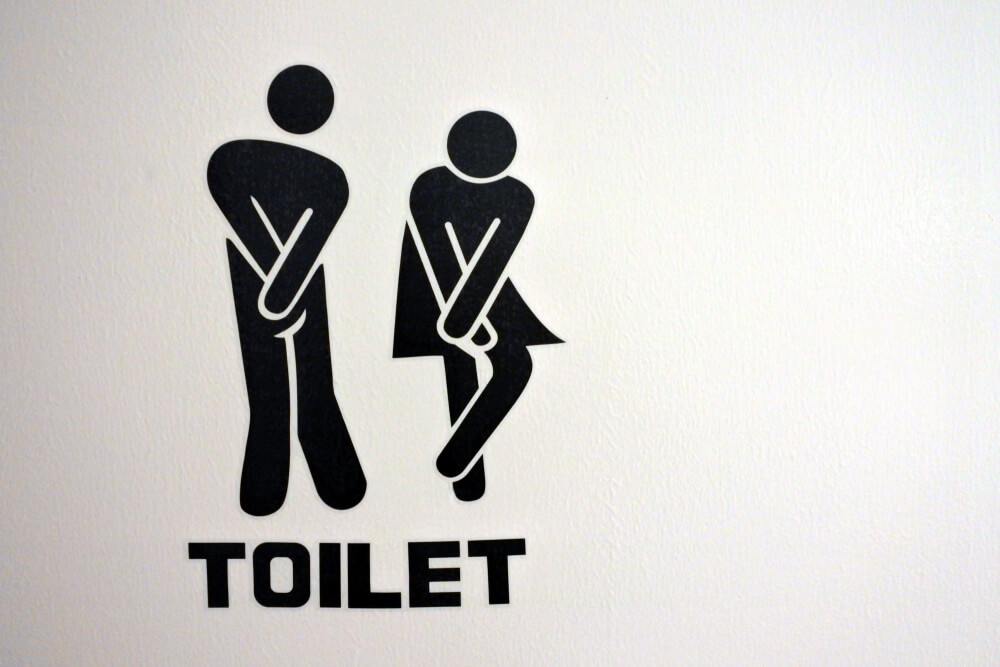In Health
Published 16 days ago
Could One of These 10 Issues Be Causing Your Muscle Spasms?
Muscle spasms can be caused by a wide variety of conditions. According to the National Center for Biotechnology Information, muscle spasms are the number one sports-related condition that requires medical or therapeutic intervention.
Muscle spasms, also known as muscle cramps, are involuntary contractions of a muscle that refuses to relax. While these contractions usually end on their own, they can last and become serious problems if they are part of a more complicated condition.
Symptoms
Muscle spasms present themselves differently depending on what is causing them, but here are a few sure symptoms to look out for:
Building or Tight Muscles
Muscle Fasciculation or Twitching
Typically Only Lasts for a Few Moments
Sore Muscles
Complications
Muscle spasms are typically both common and relatively mild. While they may be uncomfortable in the moment, they usually resolve themselves in a matter of seconds. More intense muscle spasms might need heat or other therapies to be relieved. Severe or chronic muscle spasms can lead to some complications:
Muscle Contractions
Permanent Nerve Damage
Muscle Pain
Difficulty Exercising
Lowered Quality of Life
What Causes Muscle Spasms?
Since muscle spasms are so common, they can be triggered by a wide variety of causes, including the following…
1. Insufficient Stretching
Stretching is one of the most important activities you can do when it comes to relieving muscle spasms.
Insufficient stretching fails to warm up the muscles in your body, which can cause them to become overworked. A regular stretching routine can therefore go a long way to preventing muscle spasms.
Why Insufficient Stretching Increases the Risk of Muscle Spasms
When we stretch, we get our muscles ready for activity or help them relax after a workout. Muscles that have not been stretched are not properly prepped for movement. This fact is just as true for everyday life as it is for your trips to the gym. After all, muscles that are left tight and overworked are more prone to muscle spasms. As such, stretching not only prepares muscles for movement, it also helps them to relax at the end of the day.
Other Symptoms of Insufficient Stretching
Other symptoms of insufficient stretching include muscles that are tight, sore, or otherwise feeling stiff. Poor range of motion is another sure sign of insufficient stretching.
Like poor stretching, muscle fatigue can also lead to spasms…
2. Muscle Fatigue
Did you know that your individual muscles can become tired?
When overworked (either from too much exercise, lack of sleep, or stress), the muscles in your body can become fatigued. In short, muscular fatigue is a common cause of muscle spasms.
Why Muscle Fatigue Increases the Risk of Muscle Spasms
Fatigued muscles are ripe for muscle cramps and spasms. You see, when your muscles become overworked, they lack the natural ability to fend off spasms. Fatigued muscles can’t process the body’s nutrients as readily and they also are more quick to overheat, after all. Fatigued muscles amplify many of the other causes of muscle spasms as well.
Other Symptoms of Muscle Fatigue
Muscle fatigue is marked by a general poor performance of the muscles of the body. Specifically, fatigued muscles can be sore, weaker than normal, and be more likely to cramp up.
Another physical cause of muscle spasms is poor circulation…
3. Inadequate Blood Flow
Proper blood flow is vital to having healthy muscles. When blood flow becomes poor, muscles subsequently lose their natural ability to function. This loss of function can lead to many medical problems, including muscle spasms.
Why Inadequate Blood Flow Increases the Risk of Muscle Spasms
You need strong blood flow to keep your muscles working. Blood has many important functions when it comes to the health and daily operation of our muscles, after all. For starters, blood carries nutrients and oxygen to the muscles and helps to keep the muscles clean. If any of these important functions becomes interrupted, muscles can be more prone to spasms.
Other Symptoms of Inadequate Blood Flow
Poor circulation can have a variety of other symptoms. Numbness and tingling in the extremities, cold hands or feet, and swelling in the lower body are just a few to keep in mind.
As with blood flow, our nervous system also needs to be unobstructed for muscles to function properly…
4. Nerve Compression
Your nervous system is effectively the electrical wiring that controls your muscles. Now, our nervous systems split into two separate channels. First, we have the autonomic system, which handles our body’s automatic functions, such as heartbeat and breathing. Second, we also have a somatic system, which handles our voluntary functions. These functions include activities like arm movement and speech.
If a nerve becomes compressed, we disrupt these channels, leading to issues; we can therefore experience spasms as a result of these compressions.
Why Nerve Compression Increases the Risk of Muscle Spasms
Nerves become compressed when they are placed under excessive pressure. This pressure can be caused by internal factors, like swelling or injury, as well as external factors, like improper posture. Since a compressed nerve can not send signals as easily to muscle tissue, it can create spasms as the signal breaks down.
Other Symptoms of Nerve Compression
Compressed nerves come with some pretty noticeable symptoms. The common “pins and needles” sensation is just one of them. Severe cases can also come with pain, burning sensations, and loss of muscle control.
Another factor related to muscle spasms is our age…
5. Age
Our elders are at a higher risk for muscle spasms. As we get older, our bodies become more sensitive to changes. Muscle spasms are a common way for the body to express that there is a problem with our health.
Why Age Increases the Risk of Muscle Spasms
Age amplifies other medical conditions. For example, issues like poor circulation, stress, and dehydration become more complex as our bodies change with age. We are also more likely to be on medications that cause muscle spasms as a side effect. Advanced age also makes it harder to stay active, an activity that helps fight off muscle spasms.
Other Age-related Health Factors
As we get older, our bodies start to change; we need to adjust parts of our lives to change with them. It might not be possible to do the same workouts you did in your 20s when you reach your 60s, for example. That being said, our bodies still need exercise, nutrition, and care as we age. Finding ways to stay active helps alleviate muscle spasms.
Whether we are entering into our golden years or just entering adulthood, dehydration can cause muscle spasms…
6. Dehydration
Believe it or not, dehydration is a leading cause of muscle spasms. Because this condition is so common, it can happen at any time and to anyone. Why? Well, because our muscles need to be hydrated to function properly.
Why Dehydration Increases the Risk of Muscle Spasms
Dehydration is caused by a lack of water in the body. This issue can either come from not drinking enough water or drinking too much salty beverages like soda, energy drinks, and sports drinks. Water importantly helps the body send nutrients to the muscles, improve circulation, and keep the muscles clean. Therefore, when we get dehydrated, all of these conditions get worse and the risk of muscle spasms goes up.
Other Symptoms of Dehydration
Dehydration can be serious, and even fatal, if left unchecked. Fatigue, dry mouth, and headaches are common early signs of dehydration. It’s important to drink plenty of regular H2O throughout the day to avoid muscle spasms and more serious conditions.
Related to our hydration is another muscle spasm cause: electrolyte balance…
7. Electrolyte Imbalances
Electrolytes are minerals in the body that can carry an electric charge when dissolved in water. Our body uses these minerals for everything from maintaining hydration to sending signals through the nervous system. If your electrolytes fall out of balance, you can therefore experience muscle spasms.
Why Electrolyte Imbalances Increase the Risk of Muscle Spasms
Too many, or too few, electrolytes in the body can create muscle spasms. How? Well, on the one hand, too few electrolytes make it hard for the body to send signals through the nervous system. On the other hand, too many electrolytes can lead to an overload in the signals being sent. Being in balance means that your body will be able to self-regulate and prevent muscle spasms.
Other Symptoms of Electrolyte Imbalances
Other symptoms of an electrolyte imbalance can be subtle or extreme. On the subtle end, you can experience fatigue, headaches, and nausea while the more extreme symptoms include heartbeat irregularities, seizures, and vomiting.
Your electrolyte balance can be affected by your medications, which can also lead to muscle spasms…
8. Medication
The medications you take on a daily basis can cause muscle spasms. If you are experiencing this side effect, your best course of action is to speak with your doctor right away. While often a minor side effect, muscle spasms can also be a sign of serious trouble.
Why Medication Increases the Risk of Muscle Spasms
Almost all medications have side effects. These side effects can range from directly causing muscle spasms to indirectly creating conditions that cause them. If your medication dehydrates you as a side effect, for example, that can lead to muscle spasms even though they aren’t a direct side effect of the medicine itself.
Other Symptoms of Medication
Medicines come with a variety of side effects. Because there are so many different types of medicines each with their own list of side effects, the best way to know which symptoms your medicine may have is to consult with your doctor.
Like side effects, our medical conditions can also cause muscle spasms…
9. Medical Complications
Certain medical conditions can either cause muscle spasms or create the necessary conditions for them to occur. Muscle spasms can also be a sign that a medical condition is progressing and medical attention is needed.
Why Medical Complications Increase the Risk of Muscle Spasms
As we have learned, muscle spasms are often a symptom themselves. Anything from diseases that cause dehydration to pregnancy can cause muscle spasms. The best way to know how a given sickness relates to muscle spasms? Consult with your doctor.
Other Symptoms of Medical Complications
When it comes to muscle spasms, there are many medical conditions that can be to blame. When we get sick, for example, our bodies often become overworked, which primes them for further injury or illness. This includes being at a greater risk for muscle spasms.
When we are sick, we can also overheat which, again, is another cause of muscle spasms…
10. Overheating
Our bodies have evolved to function within a very specific range of temperatures. Once we start to move out of that range, our bodies begin to experience problems. These issues include muscle spasms.
Why Overheating Increases the Risk of Muscle Spasms
This issue is more associated with working out on a hot summer’s day than it is with a fever. When we are working our muscles, you see, they heat up. When we combine this heat with the heat of a hot gym or summer day, we can push our muscles past their limit. This overexertion leads to muscles cramping up and experiencing spasms. So, remember to keep it cool when you work out on hot days!
Other Symptoms of Overheating
When we overheat, we can experience a variety of symptoms that include dizziness, fatigue, and fainting. Dehydration is also a common symptom.
What’s Most Important to Remember About Muscle Spasms?
Muscle spasms are caused by a wide variety of conditions. Anything from medical complications to improper stretching can lead to your muscles cramping up. If you experience muscle spasms on a regular basis, it can be a sure sign that you need to consult with your doctor, physical trainer, or other expert on what the causes could be. Together, you can decide what you can do to prevent further muscle spasms.




